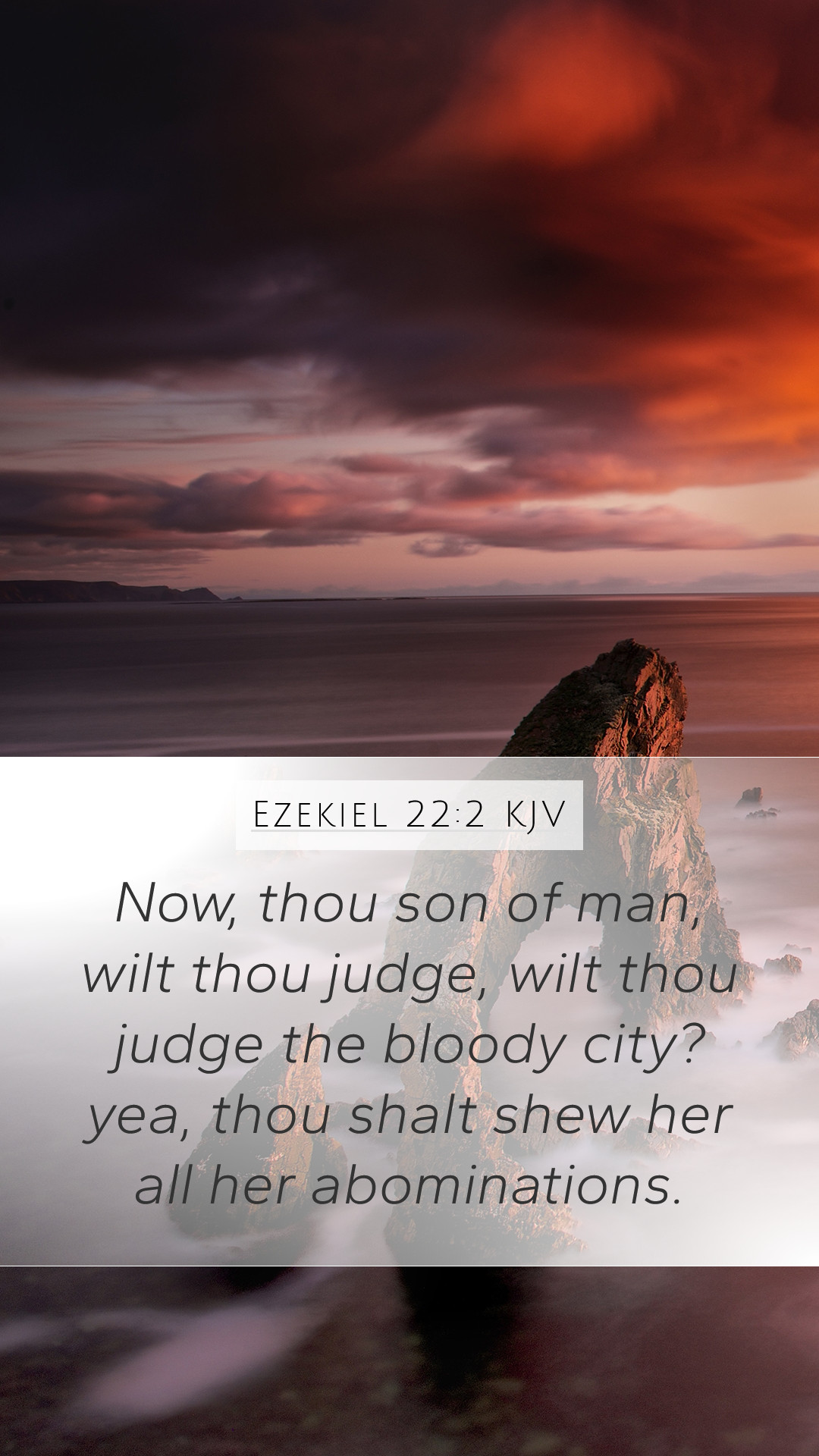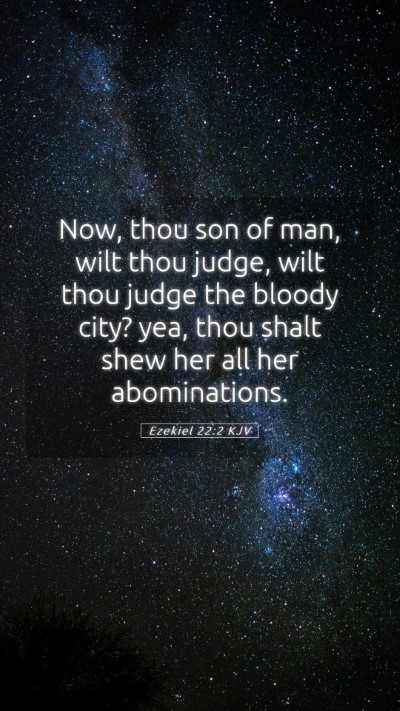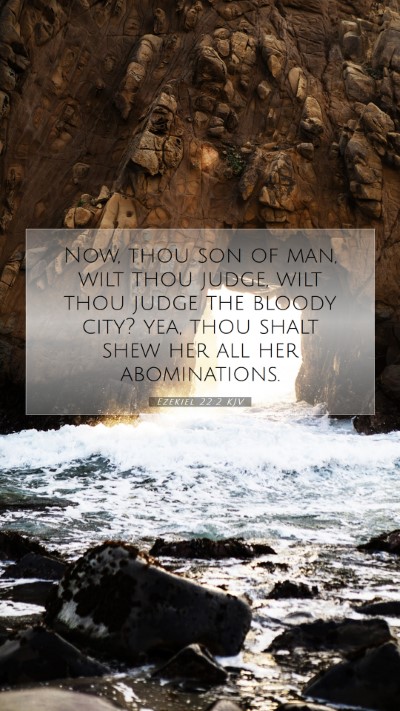Ezekiel 22:2 - Understanding the Charge Against Jerusalem
Bible Verse: "And thou, son of man, wilt thou judge, wilt thou judge the bloody city? yea, thou shalt shew her all her abominations."
Overview of Ezekiel 22:2
Ezekiel 22:2 presents a stark proclamation where God, addressing the prophet Ezekiel as the "son of man," commands him to assess the moral and spiritual condition of Jerusalem. This verse sets the tone for a series of indictments against the city for its rampant corruption, violence, and idolatry.
Historical Context
The Book of Ezekiel is set during a tumultuous time in Israel's history, primarily during the Babylonian exile. Jerusalem, once a city chosen by God, had fallen into disrepair both morally and spiritually. The Lord's call to “judge” signifies not only an assessment but an impending divine judgment on the iniquities that the city had embraced.
Commentary Insights
This section explores insights drawn from various public domain commentaries:
-
Matthew Henry:
Henry emphasizes the gravity of God's charge to Ezekiel. He interprets the phrase "bloody city" as indicative of Jerusalem's bloodshed and rampant injustices. The charge to judge relates to the prophetic role of revealing sin and urging repentance.
-
Albert Barnes:
Barnes elaborates on the abominations of the city, indicating a collective moral decay that necessitates a thorough exposure of sin. He notes that the “bloody city” symbolically refers to its people who have committed acts against God and their neighbors.
-
Adam Clarke:
Clarke points out that Ezekiel's prophetic commission is not only to lament but also to demonstrate the severity of the sins gripping the city. He highlights that showing "all her abominations" serves the purpose of inciting shame and ultimately leading to restoration.
Thematic Elements
The themes in Ezekiel 22:2 are multifaceted:
-
Judgment:
A primary theme is the judgment of God upon his people. The metaphor of a “bloody city” suggests systemic failure in justice and righteousness.
-
Prophetic Responsibility:
Ezekiel’s role underscores the burden of the prophet to bear witness against sin and proclaim God’s message. The act of judging becomes an essential facet of prophetic ministry.
-
Call to Repentance:
God’s intention is not mere condemnation; rather, it is a call to recognize wrongdoing and turn back to Him. This theme resonates with the broader prophetic message throughout Scripture.
Application for Today
The application of Ezekiel 22:2 is deeply relevant for contemporary readers. It invites individuals and communities to reflect on their moral and ethical standings:
-
Self-Examination:
Just as Ezekiel was called to inspect Jerusalem, believers today are encouraged to evaluate their lives and communities, identifying areas in need of repentance.
-
Advocacy for Justice:
The verse implores believers to champion justice and righteousness, echoing the divine mandate against the injustices prevalent in our societies.
-
Encouragement to Speak Out:
Like Ezekiel, modern-day prophets (writers, pastors, and laypeople) are called to address issues boldly, extending a message of hope and restoration.
Related Bible Cross References
- Isaiah 1:21: A lament over a once-faithful city that has become a harlot.
- Jeremiah 22:3: A call for justice and righteousness amidst oppression.
- Revelation 18:2: A depiction of Babylon's fall as a symbol of corruption and sin.
Conclusion
Ezekiel 22:2 serves as a powerful reminder of the continual call towards holiness, justice, and accountability. Through understanding this verse and its implications, believers are equipped to engage in deeper Bible study insights, interpreting Scripture with clarity and intention, and applying its truths to the challenges of the modern world.
Further Study Recommendations
For those looking to deepen their understanding of this verse and its context within Scripture:
- Join Bible study groups to explore themes from Ezekiel together.
- Use online Bible study tools to access various commentaries and interpretations.
- Consider participating in Bible study courses focused on prophetic literature.


